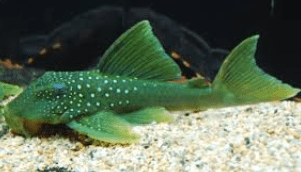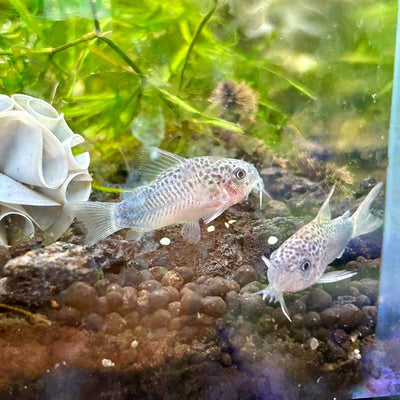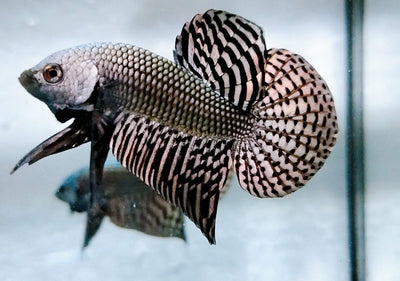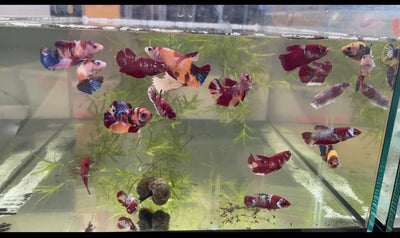Betta fish hold a fascinating place in various cultures, particularly in Southeast Asia, where they originate. Their vibrant appearance and unique behavior have inspired stories, traditions, and even national symbols. Here’s a closer look at how bettas are represented in different cultures:
1. Southeast Asian Roots
-
Thailand:
- Bettas are known as "pla kat" in Thai, meaning "biting fish," a nod to their use in traditional fish fighting. While this practice is controversial today, it shaped the selective breeding of bettas for their strength, endurance, and striking colors.
- The betta was officially recognized as Thailand's national aquatic animal in 2019, symbolizing resilience and the nation's cultural heritage.
-
Cambodia, Vietnam, and Laos:
- Wild bettas, such as Betta splendens and their relatives, were often observed in rice paddies and shallow waters, leading to their association with rural life and the natural environment.
- In some regions, they are seen as good luck charms when placed in homes or businesses.

2. Betta in Folklore and Symbolism
-
Strength and Resilience:
Bettas are often seen as symbols of determination and adaptability due to their ability to survive in harsh conditions, such as low-oxygen waters. -
Beauty and Grace:
In many cultures, bettas are celebrated for their elegance and beauty. Their stunning fins and colors are often compared to flowing silk or traditional costumes. -
Competition and Strategy:
Historically, betta fighting emphasized strategy and patience, reflecting broader cultural values of discipline and respect for one’s opponent. Bettas were not fought to the death, unlike many other fighting animals.
3. Betta in Art and Media
-
Traditional Art:
Bettas frequently appear in Thai and Southeast Asian artwork, depicted in vivid, swirling patterns to capture their fluid motion. -
Modern Media:
Bettas are popular in logos, advertisements, and even stamps in Thailand, emphasizing their cultural significance. -
Cultural Festivals:
Some local festivals or competitions still celebrate bettas, particularly in areas where they are bred extensively.
4. Bettas in Western Cultures
-
Exotic Pets:
In the West, bettas are primarily seen as beautiful and low-maintenance pets, often misunderstood as being able to thrive in tiny bowls. Efforts by hobbyists and educators aim to correct this misconception. -
Symbol of Individuality:
Their vibrant, unique appearance makes them popular symbols of creativity and personal expression.
5. Spiritual and Feng Shui Beliefs
-
Feng Shui:
In Chinese culture, keeping a betta in a well-maintained tank is thought to bring positive energy, prosperity, and good fortune. Their vibrant colors are believed to enhance the flow of chi (energy) in a space. -
Good Luck and Protection:
In some Southeast Asian cultures, bettas are considered protectors of the home, warding off negative energy.
6. Modern Advocacy and Conservation
-
Conservation Efforts:
As wild habitats face threats from urbanization and pollution, wild betta species like Betta mahachaiensis have become symbols of the need to protect natural ecosystems.
-
Ethical Awareness:
In modern times, bettas are also used to highlight the ethical considerations of pet ownership and the importance of humane treatment.
Betta fish serve as a bridge between nature, culture, and human creativity, holding unique meanings in different parts of the world. Would you like to focus on a specific region or explore deeper aspects of their cultural representation?






